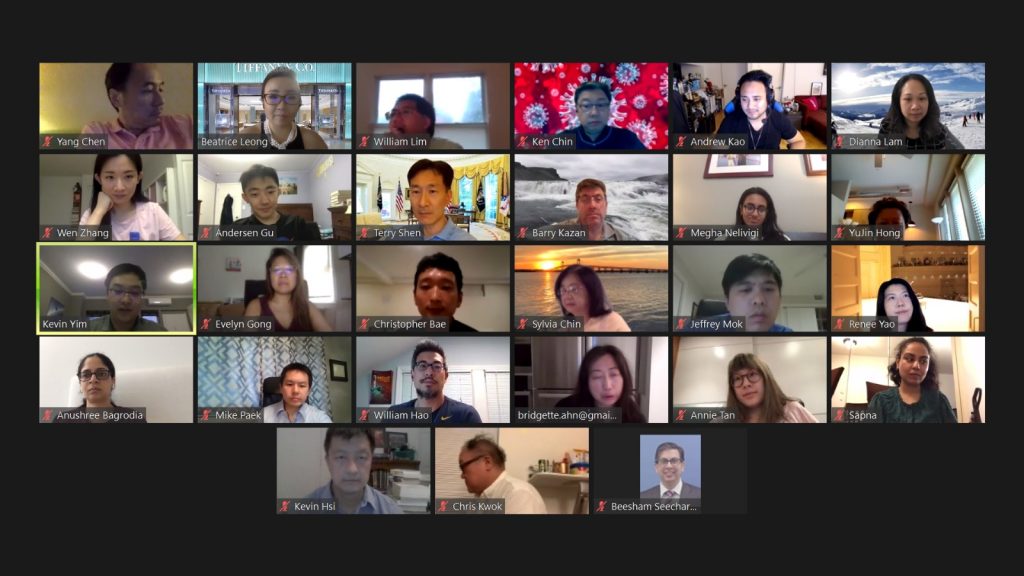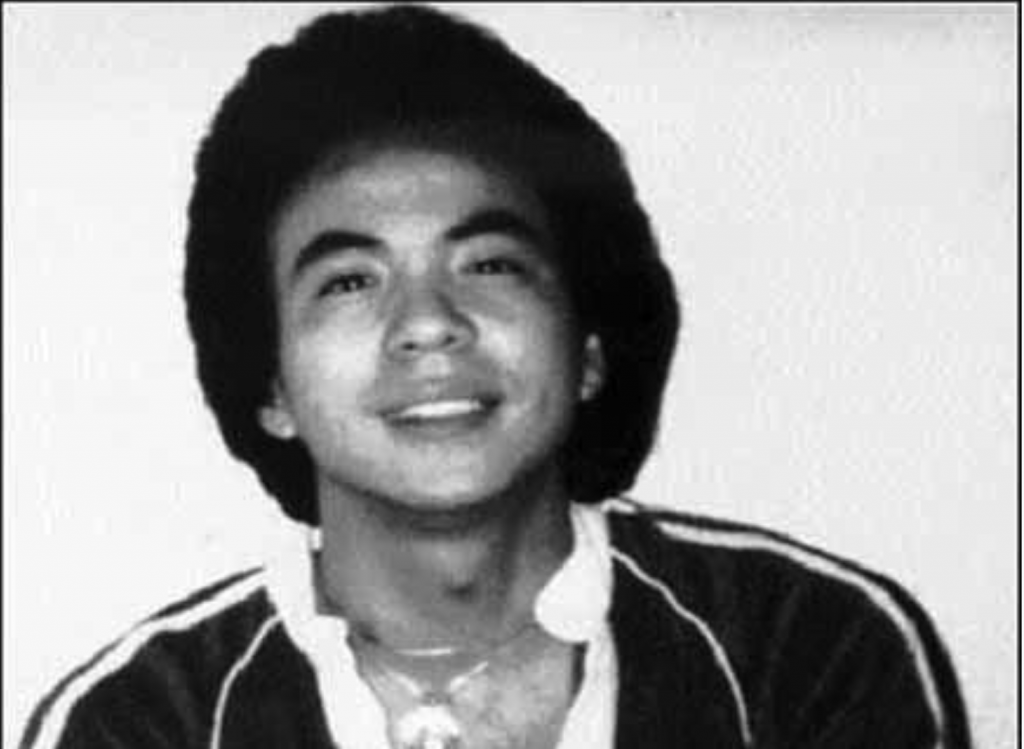
Vincent Chin is a name painfully familiar to some and unrecognizable to others. It is the beginning of so many stories, including mine. Three years ago, I met Annie Tan (no relation to me, though we happen to share the same name), an Asian American activist, teacher, and niece of Vincent Chin. She was the keynote speaker at Crossroads, a conference for young Asian American activists organized by Columbia students. I was a confused 16-year-old attending my first conference dedicated to activism.
At the time, I had just begun exploring my Asian American identity and history. Through self-education and discussions with other students, I learned about the Chinese Exclusion Act and the model minority myth. But, despite my interest in activism, I did not believe that I could seriously pursue or be successful in creating change for the Asian American community. Who would listen to a young, Asian American girl, not even old enough to vote, talk about race, especially when these conversations are often so complex and black and white?
However, as Annie Tan stood behind the podium and began recounting her own journey in activism–how she found a supportive community through Columbia’s Asian American Alliance, and how the legacy of her uncle, Vincent Chin, affected her work–I realized that someone like me, someone who looked like me and even had the same name as me, could be an activist. Because of Asian American women like Lily Chin and Helen Zia, Vincent Chin’s death became not just a moment, but a movement for Asian Americans. And, it is because of people like Annie Tan, and maybe even people like me, that the story of Vincent Chin, and the story of Asian America, continues to be told and heard.
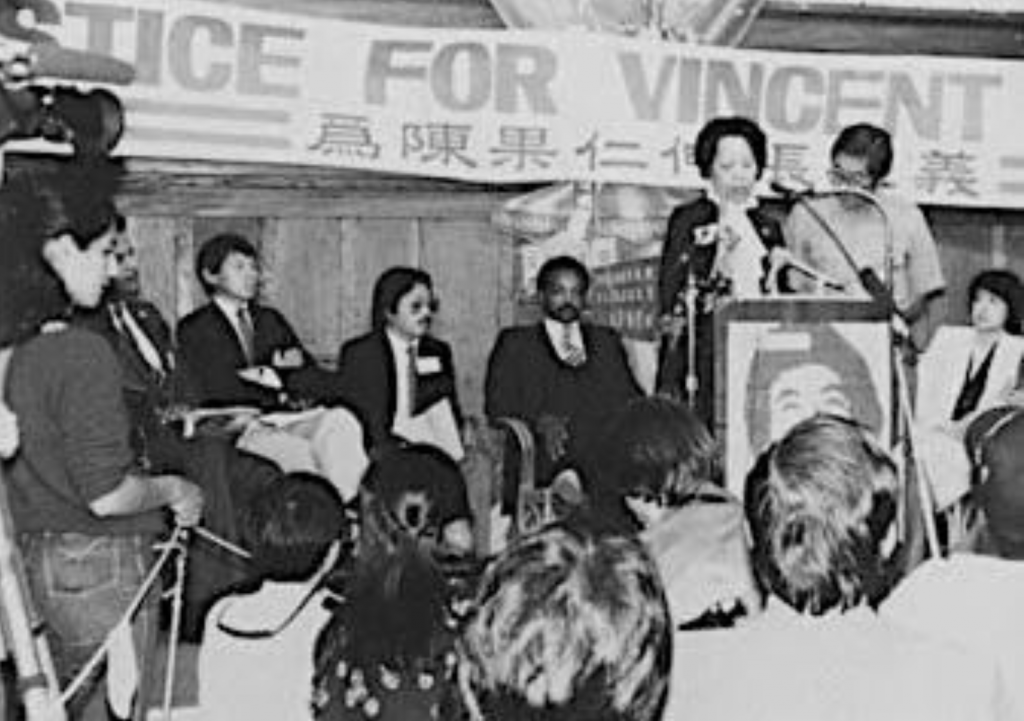
This year, on May 28, during APA Heritage Month, the Asian American Bar Association of New York (AABANY) co-sponsored a virtual trial re-enactment of the Vincent Chin case with Allen & Overy–the first time a reenactment has been performed virtually via WebEx due to the restrictions of COVID-19. I attended this event, hoping to learn more about the man whose life inspired so many, including myself, to speak out against hatred, violence, and inequity.
Vincent Chin was beaten to death in 1982 in Detroit days before his wedding by two white men, Ronald Ebens and Michael Nitz, who were laid-off automobile workers. The fatal assault was preceded by an argument between Chin and Ebens, who hurled racial insults at Chin, reportedly calling him a “Nip.” At the time, Asian Americans were the face of the enemy: the robust Japanese automobile industry was putting many automobile workers in Detroit, like Ebens and Nitz, out of work.
Despite the violent acts that Chin’s murderers committed, they were imposed only a fine for their crimes. When the case reached the Wayne County Circuit Court, Judge Kaufman, finding Ebens and Nitz guilty of manslaughter, only sentenced them to three years probation and a fine of approximately $3,000. They received no jail time, and no prosecutor appeared during the trial, nor was Chin’s family notified of the trial.
Frustrated with this outcome, Helen Zia and Lily Chin, supported by the newly-founded Asian American civil rights organization American Citizens for Justice (ACJ), urged the U.S. Department of Justice to bring federal criminal charges against the murderers and investigate the case as a civil rights violation. The case was brought to Judge Anna Diggs Taylor, one of the first African American women to serve on the Federal bench, and in 1984, the U.S. District Court found Ebens guilty of violating the civil rights of Chin and sentenced him to 25 years in prison. However, Ebens’ lawyers appealed, claiming that the trial judge did not allow the defense to present evidence that suggested the prosecution tampered with the witness testimony. This led to a retrial in the federal court in Cincinnati on May 1, 1987, which found that Ebens was not guilty of violating Chin’s civil rights and that his actions were not motivated by Chin’s race. The same year, Ebens and Nitz settled a civil suit out of court, where Nitz was ordered to pay $50,000 and Ebens was ordered to pay $1.5 million to the Chin estate. To this day, Ebens has not served any jail time and has yet to pay the now $8 million (with accumulated interest) he owes to the Chin family.
The Vincent Chin case highlighted the flaws in our criminal justice system and served as a catalyst for Asian American civil rights engagement. Following the trials, federal and state laws were enacted to give victims of hate crimes greater rights. The case also led to reforms in sentencing and plea bargaining, including the Sentencing Reform Act of 1984. Most importantly, Chin’s murder awakened the civil rights consciousness of Asian Americans in a time when the subject of race was still Black and White. Asian Americans were galvanized by the notion that they, just like Vincent Chin, could be beaten to death because of their race without the perpetrators suffering any consequences. People across ethnic and socioeconomic lines joined together to seek justice for Chin, creating organizations such as American Citizens for Justice, now known as the Asian American Center for Justice, focused on civil rights work.
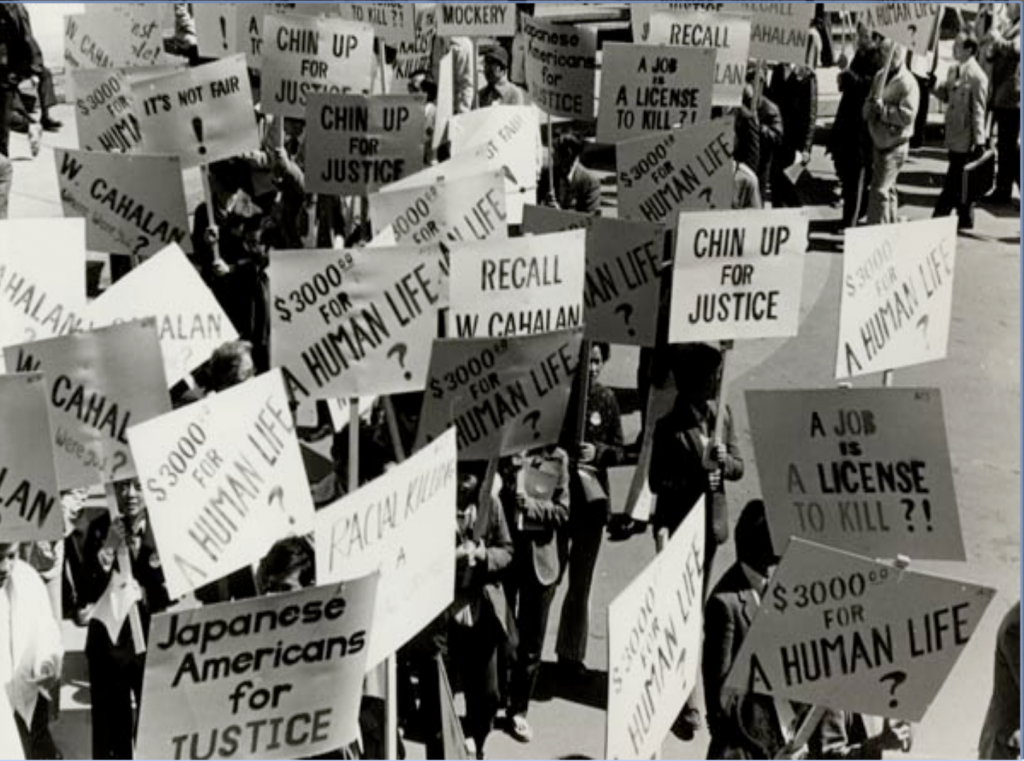
A panel discussion followed the trial re-enactment, featuring: Christine Choy, director of the Academy Award-nominated documentary film, “Who Killed Vincent Chin?” and professor at NYU Tisch School of Arts; Emil Guillermo, print and broadcast journalist, and contributor to the Asian American Legal Defense and Education Fund’s blog; and Jia Lynn Yang, Deputy National Editor at The New York Times and author of One Mighty and Irresistible Tide, which examines the history of immigration in the United States. The discussion was moderated by John Hwang, Partner, and Jiawei Chin, Associate, at Allen & Overy.
Christine Choy reflected on the evolution of activism and the Asian American identity, referencing major events such as the end of the Vietnam War, and the rise of the Black Panther Party and other young student movements. She cited the Red Guard Party in Chinatown as an early example of Asian American activism and stressed that Vincent Chin’s murder was responsible for asserting Asian Americans’ role in civil rights.
Emil Guillermo emphasized that though the crime of Vincent Chin awoke people in Detroit, he, himself, did not know as much as he should have about the case. As we approach the 40th anniversary of Chin’s death, most people still do not understand the full picture of what happened during Chin’s case. Guillermo also highlighted the similarities between Vincent Chin’s death and that of George Floyd, urging the Asian American community to recognize their shared experiences with Black communities.
Finally, Jia Lynn Yang noted how quickly the Asian American population has grown, rising from 3.5 million in 1980 to now over 20 million. Despite their growing presence, Asian Americans are still viewed as foreigners who will never belong in the United States, just as Vincent Chin was. In fact, the Immigration and Nationality Act of 1965, which allowed many Asian Americans to immigrate to this country, was not consciously written to welcome non-Europeans. Now, however, almost two-thirds of Asian Americans are foreign-born, and the xenophobic attacks Chin faced have transformed into anti-Asian violence and harassment from racially-charged fears over COVID-19.
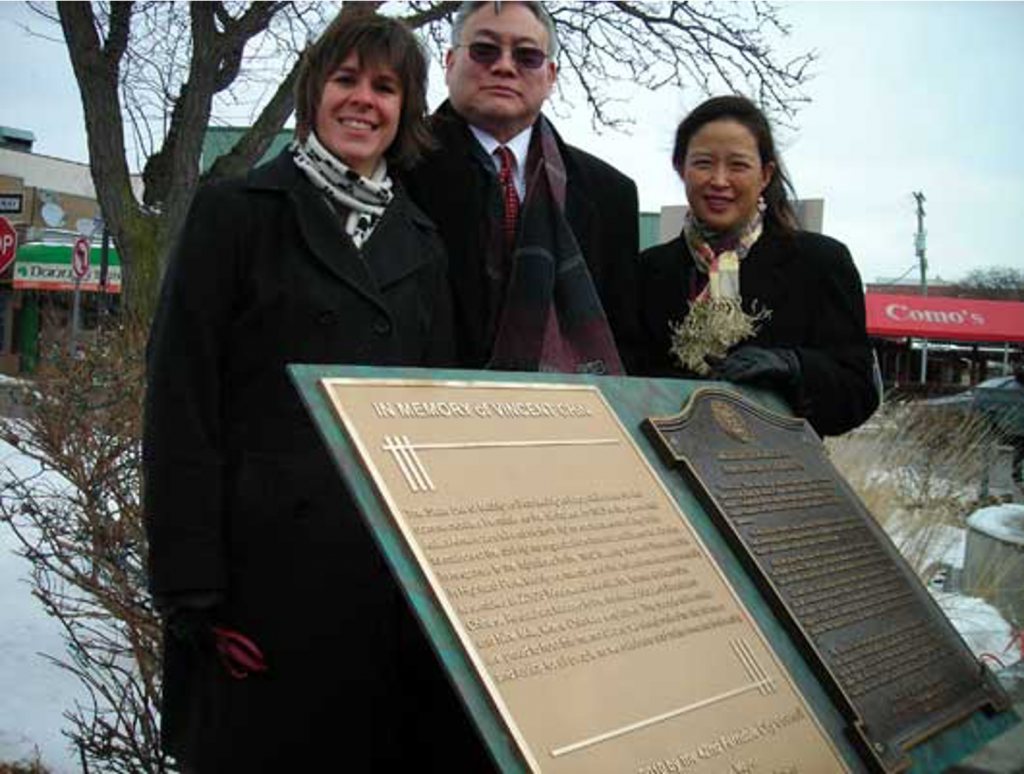
Many of us are tied to Vincent Chin, often in ways we may not even realize. He is the reason why many individuals, like myself, are inspired and emboldened to engage in Asian American activism. Vincent Chin is not just a memory they think of once a year, on the anniversary of his death. As I listened to Annie Tan describe her family’s pain, and how brave and lonely Lily Chin–her great aunt–was as she fought for her son’s justice, I understood that Vincent’s murder is a wound that continues to haunt families, friends, and communities connected to him, and a legacy that is still alive in Asian Americans today.
It is easy for us to forget their names: Vincent Chin, Trayvon Martin, George Floyd, Breonna Taylor, Ahmaud Arbery, Elijah McClain. But we must recognize that these individuals are not simply statistics or hashtags. Their lives–cut short by racism, bigotry, and the failures of our criminal justice system–mattered. Their lives have the power to inspire people to take action against hate and to spark movements, but this is only possible if we continue to learn about and honor these individuals, whose stories have been lost and overlooked. Only then, by acknowledging those before us, can we strive to create real change and avoid repeating the past.
We thank Allen & Overy and all of the participants in the reenactment for giving their time to raise awareness of Vincent Chin’s legacy. To learn more about the Vincent Chin trial reenactment and to request the script, go here. For more information about AABANY’s trial reenactments project, visit https://reenactments.aabany.org/.


